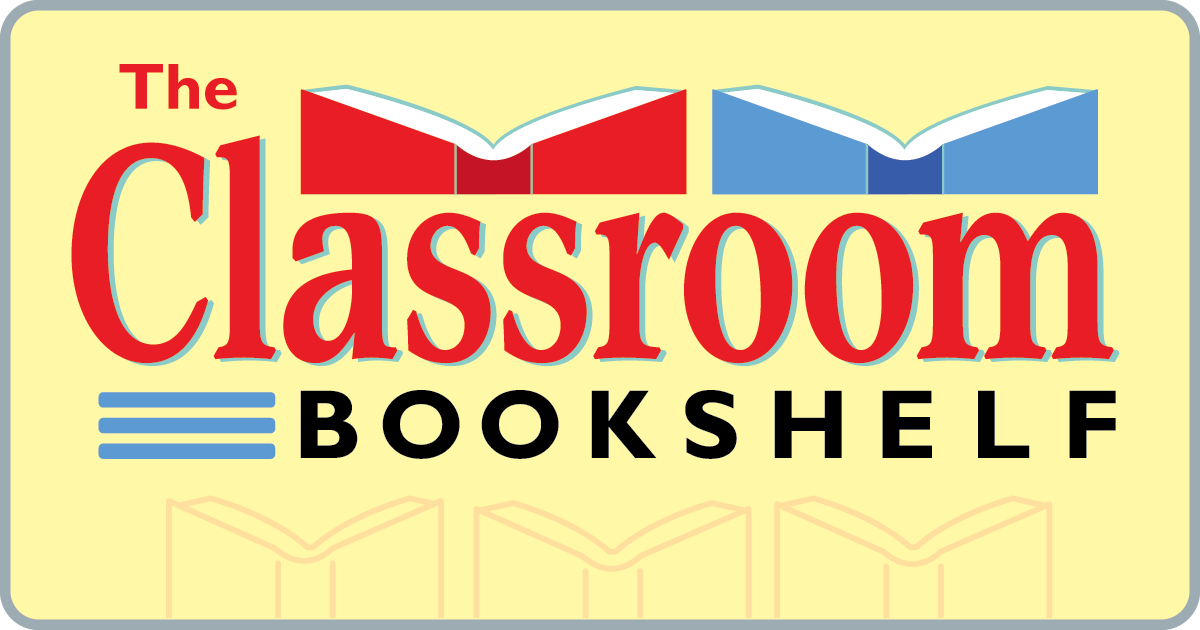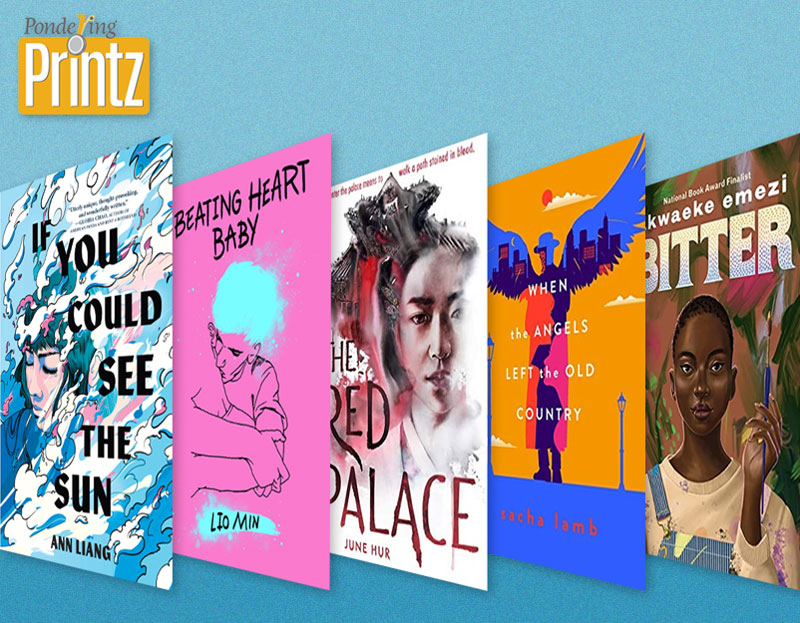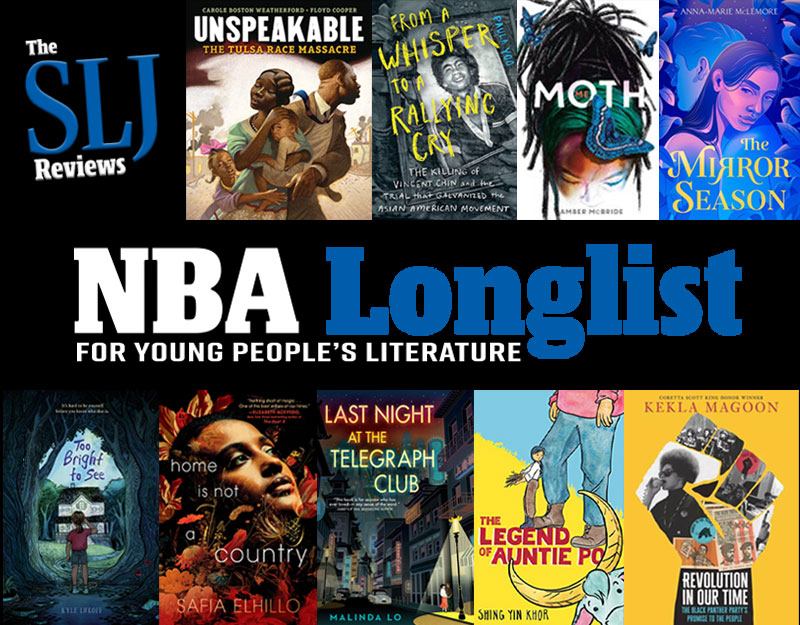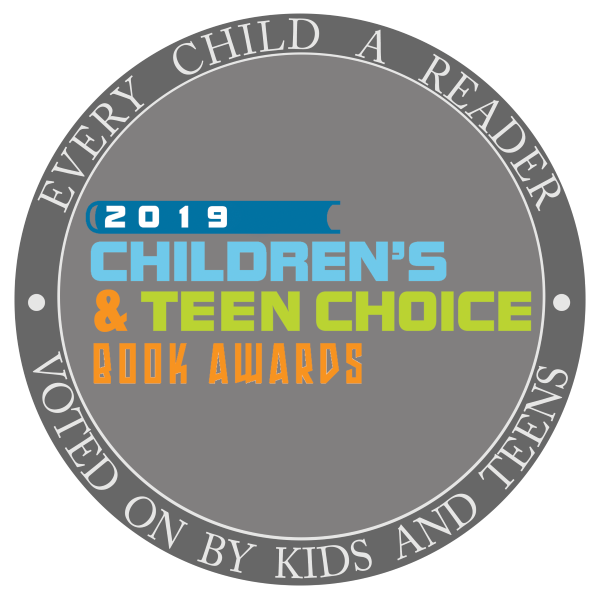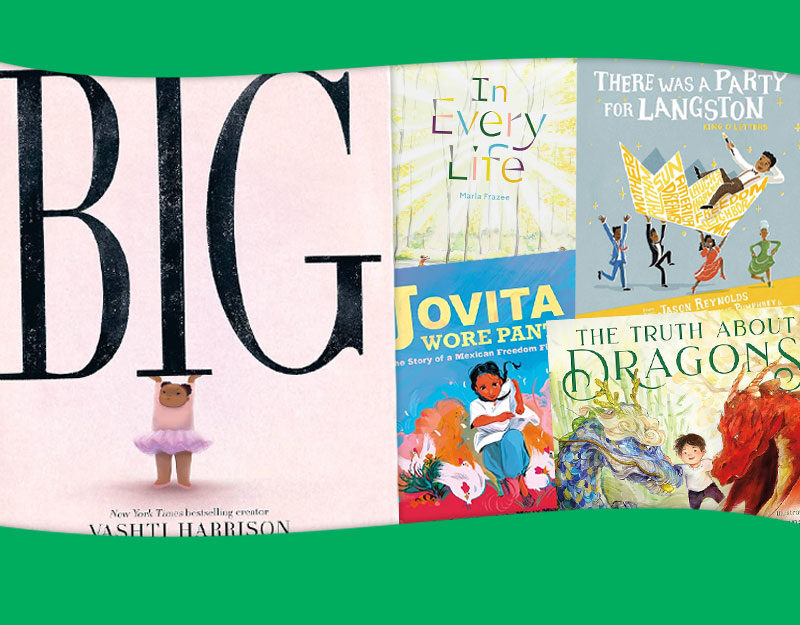What Do Books Give Us? Thinking about the Purposes of Your Text Selections This Year

“Books allow us a bird’s-eye view of our own lives, and especially how our lives relate to those lives around us.” – Christopher Myers, 2013
As we begin another school year with a mix of uncertainty and hope, we find ourselves turning to children’s books as the single greatest source we have to honor the good in life and to create space for vulnerability alongside children.
We continue to find that books are sources of comfort, antidotes to loneliness, and portals to feelings of affirmation and amazement. We find books that tell us about places we’ve never been, people we may never meet. We find books that explain scientific concepts about which we are curious, books that demonstrate how to make or build something. Books that help us escape our present circumstances, and ones that help us to understand them. Books that make us angry, and prompt us to take action. Books that make us more compassionate, and better able to understand other people’s perspectives, even if we don’t always agree with them. It’s with that spirit that we enter this new school year thinking about why our book selections matter more than ever.
ADVERTISEMENT
ADVERTISEMENT
In this blog post, we share five purposes for selecting books, so that it helps you think about why you are selecting particular books as read alouds, options for book clubs and literature circles, or centerpieces of your curriculum, and what you hope to give your students by centering them in your classroom. Of course, we select books for many different reasons, but we have found over more than a decade of blogging about books that these five purposes are the primary reasons why we select books for The Classroom Bookshelf and for why we recommend particular books to teachers. We also know that educators are challenged more than ever about what they are teaching, why they are teaching it, and how they are teaching. When we have a strong understanding of our purpose, we can bring confidence to families and children that we are mindful of what books give us and how they shape children’s hearts and minds.
The following five purposes are not meant to be prescriptive but are meant to be guideposts supporting you as you choose which books to read aloud this year, to feature in your classroom library, to do “first page Fridays” from, to build into your social studies, science, or integrated curriculum, or to add to a student’s book stack. There is so much uncertainty that we have carried for over a year that we find that feeling more certain about our book selections offers us some reassurance. We hope these purposes and our book suggestions help.
Care for Ourselves and One Another
Books and the conversations that books inspire are the single greatest tool we have to help students show grace to themselves, to seek points of connection and belonging with others, and to rethink the world they live in to imagine a better one. One purpose for selecting books can be to introduce students to characters that students will care about thereby giving them a roadmap for how to begin to understand the thoughts and feelings of others they will encounter in life. As we navigate the start of another school year where uncertainty still prevails, turning to books to expand students’ capacity to care for themselves and others is more important than ever. Some of the books we have featured this past year that particularly support that purpose are Bear Island written and illustrated by Matthew Cordell, Eyes that Kiss in the Corner written by Joanna Ho and illustrated by Dung Ho, and I Am Every Good Thing written by Derrick Barnes and illustrated by Gordon C. James.
Connect the Past to the Present
Philosopher George Santayana (1905/2011) wrote that, “Those who cannot remember the past are condemned to repeat it” (p. 172). What does it mean to remember the past? Can we remember a past that was not our own? We can’t time travel, but we can read historical fiction and nonfiction. When elementary and middle school readers open up a work of historical fiction, it’s a bit like stepping back into the past. They get to walk around in another time, another place, another culture. When young people read about the perseverance and stamina of a historical figure – famous or otherwise – entwined in conflicts of a previous generation, they can see themselves and others. They can understand how hard people have had to work to work to survive. To work for equity. To uncover new knowledge about the world. To create peace. When young people explore the past – when they walk around in it through fiction and nonfiction, and feel the emotions of those people who came before us – they can begin to understand not just the cause and effect of human history, but the shared experiences of humanity – love, loss, delight, laughter, pain – that cut across cultures and generations. Some of the books we have featured this past year that particularly support connecting the past to the present are Unspeakable: The Tulsa Race Massacre by Carole Boston Weatherford, illustrated by the late Floyd Cooper, The Teacher’s March! How Selma’s Teachers Changed History, written by Sandra Neil Wallace and Rich Wallace, illustrated by Charly Palmer, and We Dream of Space, written by Erin Entrada Kelly.
Closely Observe World Around Us
ADVERTISEMENT
ADVERTISEMENT
Children are natural observers of the world around them. Sights, sounds, smells, touch and taste sensations all provide opportunities for wondering, experiencing and learning. Books can be vehicles to sustain students’ natural curiosity and observation skills and lenses to inspire an even closer look. Observation of our natural world, of phenomena, and of human behavior lead children to wonder and imagine. Observation leads to inquiry and the development of hypothesis and consequently theories. This in turn, leads to invention – to the creation of ideas and items that improve our world and to the creation of works of art. Now more than ever, as we seek solutions to improve human caretaking of the natural world, books that bring that world into clearer focus serve as pathways to the kinds of inquiry and invention that will serve to bring our relationship with nature into greater balance. Some of the books we have featured this past year that particularly support that purpose are Dream Builder: The Story of Architect Philip Freelon written by Kelly Starling Lyons and Illustrated by Laura Freeman, Being Frog written and photographed by April Pulley Sayre and Becoming a Good Creature written by Sy Montgomery and illustrated by Rebecca Green.
Create and Compose
The very concept of a book revolves around the value of creation. In writing and illustrating children’s books, one is deeply immersed in the act of creating. What books create is a narrative that presents a specific worldview, real or imagined, that invites children to create as well. While reading, children create visions of the stories and information they read. They create meaning and interpretations of the words and images on the page, merging them with what they have experienced in their lived realities. Children also create communities of readers who enjoy the same kinds of texts, pursue the same inquiries through books, and appreciate reading as a worthwhile engagement. Books motivate children to create in artistic and inventive ways, as well. They inspire children to compose their own stories and illustrations. They teach children to create solutions to problems in a whole host of fields, through STEAM activities as well as interpersonal and socially conscious goals. Some of the books we have featured this past year that particularly support that purpose are We All Play/kimêtawânaw, written and illustrated by Julie Flett; The Polio Pioneer: Dr. Jonas Salk and the Polio Vaccine, written by Linda Elovitz Marshall and illustrated by Lisa Anchin; and The One Thing You’d Save, written by Linda Sue Park and illustrated by Robert Sae-Heng.
Cultivate Critical Consciousness
We subscribe to the belief that students are already engaging as critical readers as they read the world and as they engage with texts often long before we deem them ready. We draw from education professor Gholdy Muhammad’s (2020) Cultivating Genius: An Equity Framework for Culturally and Historically Responsive Literacy when she writes, “Criticality calls for teachers to connect their teaching to the human condition and to frame their teaching practices in response to the social and uneven times in which we live.” Many of our book suggestions and teaching invitations connect intersectionality and children’s literature with recognition that we all have multiple facets to our identities and that our book selection often has intersectional purposes. Some of the books we have featured this past year that particularly support students to develop critical consciousness are No Voice Too Small: Fourteen Young Americans Making History edited by Lindsay H. Metcalf, Keila V. Dawson, & Jeanette Bradley and illustrated by Jeanette Bradley, Pride Puppy written by Robin Stevenson and illustrated by Julie McLaughlin and Dictionary for a Better World written by Irene Latham and Charles Waters and illustrated by Mehrdokht Amini.
************
As we commence the 2021-2022 school year, we hope our blog entries, from any time over the past decade as well freshly “inked” ones, are a useful tool in selecting books for your classroom. As always, we’d love to hear from you. How do you use the blog? What do find particular useful? What isn’t? What else could we be doing to help you meet your needs? Use the chat feature below to let us know!
Filed under: Announcements, Book Reviews
About Katie Cunningham
Katie is a Professor of Literacy and English Education at Manhattanville College. There she is also the Director of the Advanced Certificate Program in Social and Emotional Learning and Whole Child Education. Her work focuses on children’s literature, joyful literacy methods, and literacy leadership. Katie is the author of Story: Still the Heart of Literacy Learning and co-author of Literacy Leadership in Changing Schools. Her book Start with Joy: Designing Literacy Learning for Student Happiness will be released September 2019. She is passionate about the power of stories to transform lives.
ADVERTISEMENT
ADVERTISEMENT
SLJ Blog Network
The Moral Dilemma of THE MONSTER AT THE END OF THIS BOOK
Cover Reveal and Q&A: The One and Only Googoosh with Azadeh Westergaard
K is in Trouble | Review
Parsing Religion in Public Schools
ADVERTISEMENT

